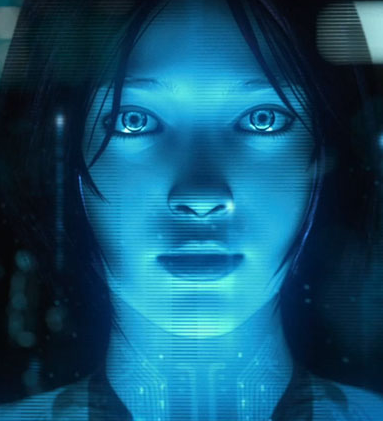'Cortana': More on Microsoft's next-generation personal assistant

Back in June, screen shots of an early Windows Phone operating system build leaked (via a Lumia phone allegedly purchased on eBay). At that time, next-to-no attention was paid to an app, listed as "zCortana," that was on the phone.

But that Cortana app (with the "z" indicating it was a test build) is central to what Microsoft is doing to compete with Apple's Siri and Google Now. And Cortana is back in the news this week with passing mentions by those tracking what's happening with Windows Phone as it moves toward the "Blue" release in the early part of 2014.
Cortana takes its codename from Cortana, an artifically intelligent character in Microsoft's Halo series who can learn and adapt.
Cortana, Microsoft's assistant technology, likewise will be able to learn and adapt, relying on machine-learning technology and the "Satori" knowledge repository powering Bing.
Cortana will be more than just an app that lets users interact with their phones more naturally using voice commands. Cortana is core to the makeover of the entire "shell" -- the core services and experience -- of the future versions of Windows Phone, Windows and the Xbox One operating systems, from what I've heard from my contacts.
In Microsoft CEO Steve Ballmer's strategy memo from July about Microsoft's reorg, there were hints about Cortana. Ballmer mentioned that Microsoft will be working, going forward, on "a family of devices powered by a service-enabled shell."
That "shell" is more than just the Metro/Modern/tiled interface. Ballmer continued:
"Our UI will be deeply personalized, based on the advanced, almost magical, intelligence in our cloud that learns more and more over time about people and the world. Our shell will natively support all of our essential services, and will be great at responding seamlessly to what people ask for, and even anticipating what they need before they ask for it."
The coming shell won't simply surface information stored on users' phones, PCs and consoles like a search engine can do today. It also will "broker information among our services to bring them together on our devices in ways that will enable richer and deeper app experiences," Ballmer said in his memo. (That "brokering" is handled by Bing's Satori, which intelligently interconnects entities, i.e., information about people, places and things.)
Microsoft execs -- especially Ballmer -- have been talking up Microsoft's plans to launch a new kind of personal assitant technology since 2011. At that time, Ballmer was touting publicly the idea that users would be able to tell their PCs to "print my boarding pass on Southwest" and have their systems automatically jump into action. The magic behind the scenes would be a combination of Microsoft Bing, Tellme speech technology and some natural-language-plus-social-graph concoction. (Microsoft moved its speech team into its Online Services unit, seemingly to facilitate work with the Bing team, at the very end of 2011.)
But other Microsoft execs said that this kind of assistant would be unlikely to appear until somewhere between 2014 and 2016. Earlier this summer, Bing officials told CNET that Microsoft had decided to wait until it had something revolutionary, instead of evolutionary, to debut this kind of new assistant technology.
Cortana is yet another reason why Microsoft is unlikely to sell off Bing. Bing is more than a Web search engine; it's also the indexing and graphing technology that will be powering Microsoft's operating systems, too.